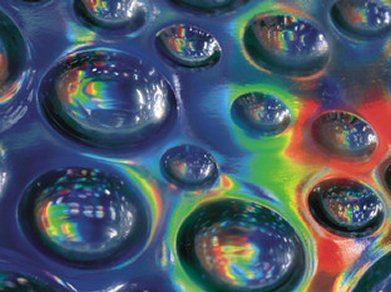Immobilization of nanoparticles on complex 2D and 3D substrates is an important process in many fields, such as electronics or biomedicine. Nevertheless, achieving this task under mild conditions is challenging.
Qinmin Pan and Qing Zhu, Harbin Institute of Technology, Weihai, China, succeeded in anchoring oxide nanoparticles of different sizes and chemical compositions on various macroscopic porous substrates such as polyurethane sponges. The researchers demonstrated that when oxide nanoparticles and a polyurethane sponge were added to an aqueous solution of dopamine and n-dodecanethiol, the inner and outer surfaces of the sponge skeleton became densely and homogenously covered with nanoparticles. This process, moreover, conferred superhydrophobicity to the resulting sponges. Owing to this property, when placed on the surface of oil–water mixtures, the new sponges quickly and selectively absorbed the oil, thereby separating it from the water.
Thus, in addition to revealing a new important strategy to anchor nanoparticles to complex substrates, the study provides a novel approach to clean oils from water surfaces.
- Mussel-Inspired Direct Immobilization of Nanoparticles and Application for Oil–Water Separation,
Qing Zhu, Qinmin Pan,
ACS Nano 2014, 8, 1402–1409.
DOI: 10.1021/nn4052277




